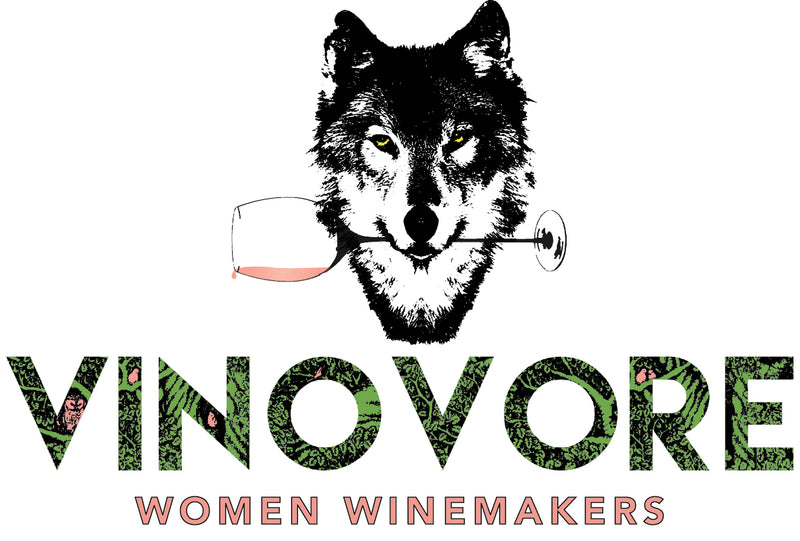What Is Clean Wine? The Truth On This Buzzy Beverage Trend
You've likely heard of the term "clean eating," which would seem to imply having a diet that's filled with wholesome, good-for-you foods in lieu of processed junk. But what about clean drinking? It's a huge trend in the beverage industry now that coincides with the booming wellness industry, but what exactly is clean wine? And should you be drinking it? The answer (much like some clean wines) is actually a bit cloudier than you might expect.
Wines that label themselves as "clean" seem to be popping up everywhere, with one of the best-known recent examples being that of Cameron Diaz and Katherine Power's Avaline. The duo have said that they created the brand with transparency in mind, specifically after learning of some surprisingly common winemaking practices. For example, "fining"— the process frequently used to clarify wine — can include a number of animal products, according to PETA. "Popular animal-derived fining agents used in the production of wine include blood and bone marrow, casein (milk protein), chitin (fiber from crustacean shells), egg albumen (derived from egg whites), fish oil, gelatin (protein from boiling animal parts), and isinglass (gelatin from fish bladder membranes)," the animal rights organization explains. Such processes ultimately make these wines unfriendly to those with a vegan lifestyle.
But for wines like Avaline, the term "clean" might also imply the way the grapes are grown or farmed (ie: organically, sustainably, or biodynamically). The wine brand's site points out that 95% of the world's vineyards do not farm organically. Beyond that, a cleaner wine can also mean that it has no added "sugars, colors, or concentrates." While Avaline explains their definition of the term, the brand also says that "there’s no official criteria on what makes a wine “clean” because the category is still being established," which means that these practices aren't ubiquitous for any wines that classify themselves this way.
Coly Den Haan, a certified sommelier and owner of Vinovore in Los Angeles, believes that the intended definition is similar to that of another big trend, natural wine. "'Clean' is basically referring to 'natural' wine, which in itself has no certified definition," she shares. "What most of my peers and I agree on is that natural wine consists of using organic and/or biodynamic farming, sustainable practices, no additions of chemicals or additives, minimal to no added sulfur, native yeast, and unfiltered and unfined."
Instead of using terms like "clean" or even "natural," professionals like Den Haan prefer calling such wines "minimal intervention," which means they don't include those additional practices that are often intended to improve flavor in many mass marketed wines. "[Just] like anything you put in your body, the more something is processed the worse it will make you feel and the less good it will do for you," she explains. Winemakers who practice this low intervention method produce wines that are naturally lower in sugar and alcohol, which the wine expert says can help stave off hangovers plus allow for "pure and lovely and weird" flavor.
Mia Van De Water, Master Sommelier and Assistant General Manager at Cote NYC, is also wary of the popularization of the term "clean" in the wine industry. "[It] is purely a marketing term," she says. "There are no regulations whatsoever surrounding the term, and it seems that most brands espousing the idea also like to incorporate other marketing terms like 'low sugar' and 'low sulfite' and 'keto-friendly,' which also have no legal definitions."
Additionally, Master of Wine Steve Smith shares that plenty of winemakers are using methods that could be considered clean — they're just not labeling themselves as such. "Many of us in the fine wine world use natural growing and winemaking methods and no additives apart from a small amount of sulphur dioxide to prevent spoilage — as do so-called clean wines," he says. "We don’t make big claims: It is just what we do because it is the right thing to do." But Smith doesn't believe the term has to be a negative thing either. "What these clean wines have done is make us think about how can we be totally transparent with how we make our wines so the consumer knows," he adds.
So let's say you want to be sure that a wine is as clean as its marketing would have you assume. As a consumer what things can you look for? "Let’s just say the shopper’s best bet is to go to the right places," says Den Haan. "Again, there’s no certification for natural wine but considering most of them are made with much smaller quantities than conventional wine, you probably won’t find any at a grocery store."
And Van De Water agrees with the idea of focusing on smaller, independent producers and shops. She explains that you can check for organic or biodynamic practices — both of which she says are more rigorously regulated. Instead of only being swayed by marketing, she suggests you building a relationship with a quality wine store in your neighborhood, and compares it to how you might shop for the best produce at a farmer's market versus a supermarket. "Buy wines from the people who make them with intention and passion — you will drink better for it," she says.
Click here to read the complete original post.
